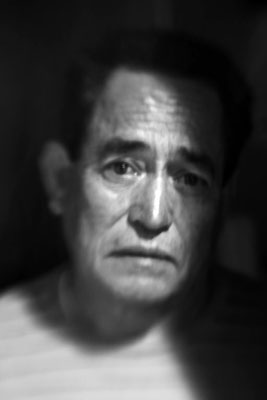All Nonfiction
- Bullying
- Books
- Academic
- Author Interviews
- Celebrity interviews
- College Articles
- College Essays
- Educator of the Year
- Heroes
- Interviews
- Memoir
- Personal Experience
- Sports
- Travel & Culture
All Opinions
- Bullying
- Current Events / Politics
- Discrimination
- Drugs / Alcohol / Smoking
- Entertainment / Celebrities
- Environment
- Love / Relationships
- Movies / Music / TV
- Pop Culture / Trends
- School / College
- Social Issues / Civics
- Spirituality / Religion
- Sports / Hobbies
All Hot Topics
- Bullying
- Community Service
- Environment
- Health
- Letters to the Editor
- Pride & Prejudice
- What Matters
- Back
Summer Guide
- Program Links
- Program Reviews
- Back
College Guide
- College Links
- College Reviews
- College Essays
- College Articles
- Back
Takebacks
The feeling of uttering something you wish you didn’t is all too familiar. You could have spontaneously insulted someone, originally meaning it as a joke. Or, you could have given it some thought, but it came out unexpectedly. Before you know it, you’ve just hurt someone’s feelings and caused yourself guilt and self-deprecation. You want to acknowledge your wrongdoing and move past it as fast as possible, but time is second to none. There are no takebacks in real life, and what you say aloud is forever.
I am tempted from time to time to do something foolish. Sometimes, it never leaves my subconscious. However, humans aren’t perfect, and mistakes are imminent. That is obvious—and when I slip, I hit the ground hard. When something is taken the wrong way, it not only makes me feel shocked at myself, but it also eats away at my conscience. If it is only trivial in a grand scheme, then I dwell on the problem for too long and exaggerate it to make myself feel worse (because I deserve it).
Doing this occasionally isn’t bad, since it encourages me to stay positive, albeit it utilizes a negative incentive, but being myself the week of my error, even when no one cares, is odious. Today, I criticized my friend’s early draft. Usually, I find it easier to detect weaknesses rather than strengths in my peers’ work. However, it hurts when I can’t identify any strengths because it makes me sad when I give feedback and my negative comments are ten times longer than my positives. Even though I try to be constructive, it doesn’t look that way. However, when I tried to come up with at least one positive on my friend’s work, my mind went blank. I wondered if not doing my classwork (because I’m busy brainstorming) was more preferable than asking the teacher for help on such a strange topic. I gave it some thought, definitely not enough, since I obviously should have kept brainstorming.
I did not speak loudly, but the whole room was silent, so everybody heard that I needed assistance complimenting my classmate. Although it wasn’t direct, it was easily inferred that I thought my friend’s writing stinked.
I was completely ashamed after I asked my question. I could feel my cheeks turning red and tingling. I started sweating and I covered my face with both hands. None of my classmates said anything, but I could feel their scorn deafening my ears. It was the last period of the day, and once the class ended, I expressed my regret too quickly to sound sincere and left the room in a dizzy rush.
Then, during my bus ride, I submerged myself in a book, partially to wash out my bad memories and to get a headache, since I needed to douse myself with suffering. These are the kinds of awkward moments I beat myself up over because it was so preventable, but I made it happen anyway. I flooded my mind with possibilities of how to cope with my idiocy, but with so little experience with these problems, I just decided to wait in cowardice until everybody forgot anything happened. No one ever forgets about these kinds of things, though.
When I came home, I spoke to no one about anything. I started doing my homework, and I didn’t allow myself the luxury of winding down and playing games. I glanced over my classwork due soon and saw another thing that filled me with more sheepishness—during a free write three days ago, I chose to rant about my untimely bowel movements. After what had transpired hours previously, I scoffed at myself. Really? How could I actually think this was worth talking about? Even though it was annoying, this was not where I should’ve complained. I erased the entire entry, ripping the paper with hateful swings of my pencil and replaced it with some philosophical distractions. Soon, I realized that writing myself away calmed me. Recording my emotions on paper allowed me to be upset, but with a pencil, not pain. I would have been fine if I ended up ripping the entry out and throwing it away because I relieved myself. Turning my moping into productivity and inspiration felt helpful and accomplishing.
In the end, I still wish I could have avoided the incident. However, I did find out how to feel better without hurting myself (because that never solves anyone’s sadness). There are no second tries in life, but instead of trying to take back an accident, you can turn it into something different, like a motivating piece of writing.

Similar Articles
JOIN THE DISCUSSION
This article has 0 comments.

Don't hate on yourself for doing soemthing wrong. Be active. Or at least, avoid hurting yourself to instill justice. That isn't healthy and it rarely ever solves anything.